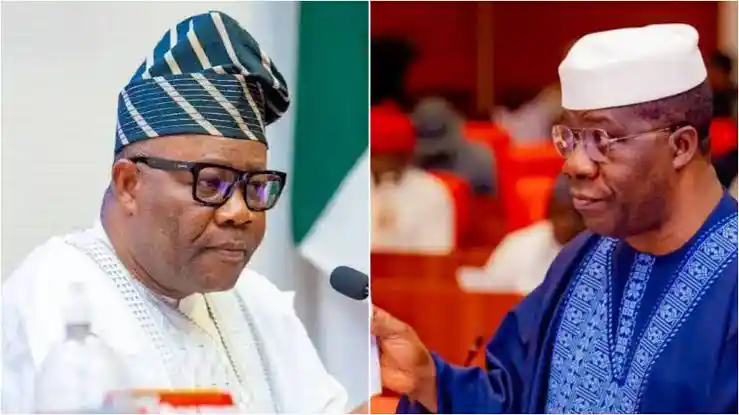ABUJA, Nigeria — The Nigerian Senate has formally denied widespread media reports alleging a clash between Senate President Godswill Akpabio and Senate Leader Opeyemi Bamidele during a recent closed-door session. The upper chamber described the reports as inaccurate and misleading.
TJ News Nigeria gathered that the alleged confrontation reportedly occurred during an executive session held to discuss whether the Senate should proceed on its annual legislative recess. However, the Senate insists that what transpired was a routine parliamentary debate—not a conflict.
In a statement issued on Sunday, Senator Yemi Adaramodu, Chairman of the Senate Committee on Media and Public Affairs, refuted the claims, calling them a mischaracterisation of standard legislative procedures.
“Our attention has been drawn to several media reports alleging a confrontation between the Senate President and the Senate Leader… These reports are completely false and misleading. They distort the essence of parliamentary tradition and practice,” Adaramodu stated.
He explained that democratic legislative bodies around the world thrive on healthy debate and dissent, especially during policy discussions or procedural motions.
“Parliamentary democracy thrives on robust debate. Every bill, motion, or policy proposal is thoroughly scrutinised and debated in the Senate, in the interest of over 230 million Nigerians,” he said.
The Senate spokesman cautioned against interpreting normal legislative deliberations as evidence of internal disunity or power struggles among Senate leadership.
“In both plenary and committee sessions, discussions are often intense and detailed, but that is the nature of a functioning legislature. These engagements do not in any way indicate cracks or altercations among members of the leadership,” he clarified.
He reaffirmed that the Senate remains united and focused on delivering its constitutional mandate. Adaramodu also urged the public and media to avoid sensationalising normal parliamentary procedures and to seek clarification before publishing reports that could mislead the public.
